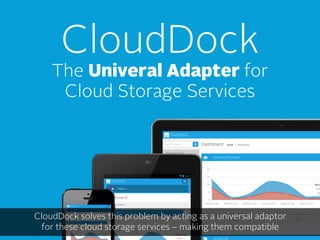Checking Out the Role of Universal Cloud Storage Space Providers in Information Security and Compliance
In today's digital landscape, the utilization of global cloud storage services has actually become extremely important in resolving data security and conformity requirements for companies throughout various sectors. As services progressively count on cloud storage solutions to take care of and safeguard their data, discovering the intricate role these solutions play in making certain information safety and security and conference regulatory criteria is necessary. From mitigating risks to boosting data availability, cloud storage solutions supply a complex strategy to securing delicate info. The developing nature of cyber risks and regulative structures presents a vibrant obstacle that organizations should navigate efficiently to promote their information security and conformity requireds. By delving into the nuances of universal cloud storage solutions, a more clear understanding of their effect on information security and governing conformity emerges, losing light on the complexities and possibilities that exist in advance.
Value of Cloud Storage Provider
Cloud storage services play a critical duty in modern-day data management strategies because of their scalability, access, and cost-effectiveness. With the rapid growth of data in today's digital age, services are significantly turning to shadow storage space services to satisfy their developing demands. Scalability is a vital advantage of cloud storage, enabling organizations to easily adjust their storage space ability as data needs rise and fall. This versatility guarantees that firms can efficiently manage their data without the need for significant in advance financial investments in equipment infrastructure.
Access is an additional crucial element of cloud storage solutions. By keeping information in the cloud, individuals can access their info from anywhere with a net connection, assisting in collaboration and remote work. This ease of access advertises operational efficiency and enables seamless sharing of data across teams and areas.
Additionally, the cost-effectiveness of cloud storage space services can not be underrated. By leveraging cloud storage space, companies can lower costs connected with buying and keeping physical servers. universal cloud storage. Furthermore, lots of cloud storage suppliers use pay-as-you-go pricing models, permitting companies to pay only for the storage space capability they use. Generally, the relevance of cloud storage space services hinges on their ability to improve information administration processes, improve availability, and reduced functional prices.
Data Protection Techniques With Cloud
By encrypting data prior to it is uploaded to the cloud and maintaining control over the encryption keys, companies can prevent unapproved access and mitigate the risk of information breaches. Multi-factor authentication, solid password plans, and normal accessibility reviews are some approaches that can boost information security in cloud storage services.
Consistently backing up information is one more crucial aspect of information defense in the cloud. By integrating file encryption, access controls, back-ups, and routine security assessments, companies can establish a robust data defense technique in cloud atmospheres.
Compliance Factors To Consider in Cloud Storage
Offered the critical nature of data defense techniques in cloud atmospheres, companies must also prioritize compliance factors to consider when it involves storing information in the cloud. Compliance needs differ throughout markets and areas, making it necessary for companies to recognize and follow the pertinent regulations. When using cloud storage solutions, services require to ensure that the supplier adheres to industry-specific standards such as GDPR, HIPAA, or PCI DSS, depending on the type of data being stored. Additionally, companies must think about data residency demands to ensure that data is kept in compliant places.

Obstacles and Solutions in Cloud Protection
Guaranteeing robust safety and security actions in cloud settings provides a multifaceted challenge for organizations today. Among the key obstacles in cloud safety and security is information breaches. Harmful stars frequently target cloud systems to get unapproved accessibility to sensitive information. To alleviate this danger, organizations should carry out solid security methods, gain access to controls, and routine protection audits. Another obstacle is the common responsibility version in cloud computing, where both the cloud service company and the client are in charge of various aspects of safety. This can lead to complication and spaces in protection protection if not plainly specified. Organizations should clearly outline duties and responsibilities to ensure comprehensive safety steps remain in location.

Future Patterns in Cloud Data Protection
The developing landscape of cloud information defense is noted by an expanding focus on proactive defense methods and adaptive security measures (universal cloud storage). As innovation breakthroughs and cyber threats become a lot more innovative, organizations are increasingly concentrating on anticipating analytics, expert click to find out more system, and artificial intelligence to boost their information protection abilities in the cloud
Among the future patterns in cloud data security is the assimilation of automation and orchestration devices to improve safety procedures and feedback processes. By automating regular jobs such as threat discovery, incident feedback, and patch administration, organizations can enhance their total safety stance and better secure their data in the cloud.
Additionally, the fostering of a zero-trust security design is gaining grip in the realm of cloud information security. This technique thinks that hazards might be both exterior and inner, calling for continuous authentication and authorization for all users and devices accessing the cloud environment. By applying a zero-trust framework, companies can minimize the danger of data violations and unauthorized accessibility to sensitive details kept in the cloud.
Conclusion
